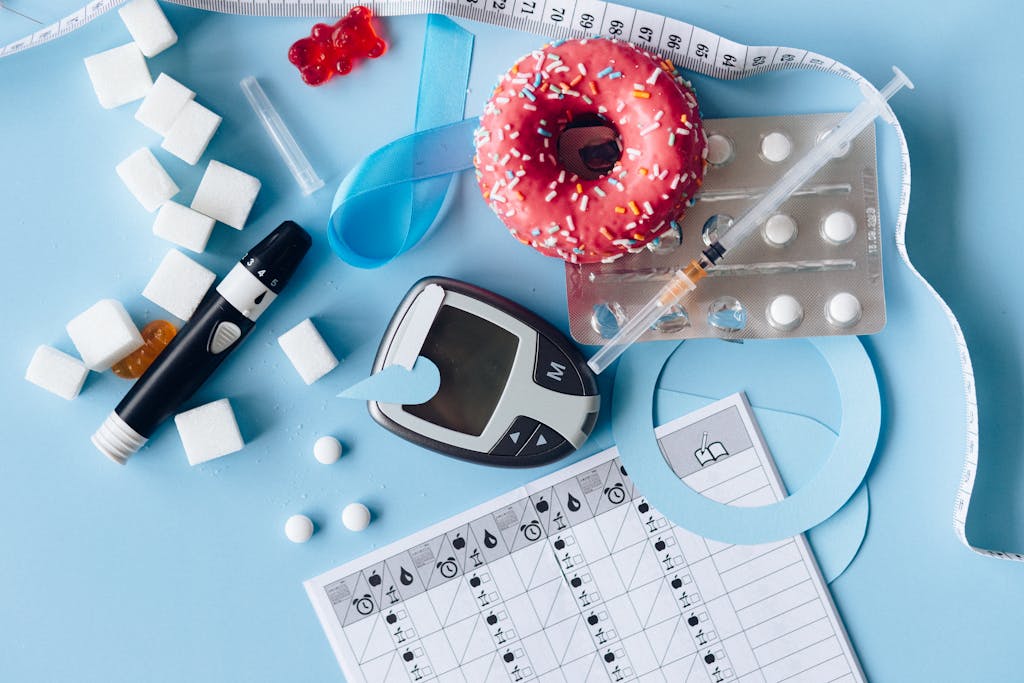Diabetes is a chronic health condition that affects how your body processes glucose, a type of sugar. There are two main types of diabetes: Type 1 and Type 2. Type 1 diabetes is often diagnosed in childhood or early adulthood, while Type 2 diabetes typically develops in adults and is associated with lifestyle factors. Early detection and prevention of diabetes are critical to managing the condition and minimizing complications. This article discusses essential tips for recognizing early signs of diabetes and taking proactive measures to prevent its onset.
Recognizing Early Symptoms
Understanding the early symptoms of diabetes is vital for prompt intervention. Common signs include frequent urination, excessive thirst, extreme hunger, unexplained weight loss, fatigue, and blurred vision. Individuals experiencing these symptoms should seek medical advice for evaluation and possible testing. Regular check-ups with healthcare professionals can help monitor risk factors and catch potential issues early.
Regular Screening for At-Risk Individuals
Regular screening is an effective way to detect diabetes before symptoms develop. The American Diabetes Association recommends that adults aged 45 and older be screened for diabetes every three years. Additionally, individuals with risk factors such as obesity, a sedentary lifestyle, family history of diabetes, or high blood pressure should be screened more frequently. Blood tests, such as the fasting plasma glucose test or the HbA1c test, can determine glucose levels and diagnose prediabetes or diabetes.
Maintaining a Healthy Diet
A balanced diet plays a crucial role in preventing diabetes. Emphasizing whole foods, such as fruits, vegetables, whole grains, lean proteins, and healthy fats, can help regulate blood sugar levels. Reducing the intake of processed foods, sugary beverages, and excessive carbohydrates is essential for maintaining healthy glucose levels. Monitoring portion sizes and making mindful food choices can also contribute to overall health and weight management.
Staying Physically Active
Regular physical activity is one of the most effective ways to prevent Type 2 diabetes. Engaging in at least 150 minutes of moderate aerobic exercise each week can help improve insulin sensitivity and lower blood sugar levels. Activities such as walking, swimming, cycling, and strength training are excellent options. Finding enjoyable activities and incorporating movement into daily routines can promote long-term adherence to an active lifestyle.
Maintaining a Healthy Weight
Obesity is a significant risk factor for developing Type 2 diabetes. Maintaining a healthy weight can significantly reduce the risk of the condition. For individuals who are overweight, even a modest weight loss of 5-10% of body weight can improve health outcomes and lower the risk of diabetes. Combining healthy eating with regular physical activity is the most effective strategy for weight management.
Managing Stress Levels
Chronic stress can negatively impact blood sugar levels and contribute to the risk of developing diabetes. Learning stress management techniques, such as meditation, deep breathing exercises, or yoga, can help reduce stress and promote emotional well-being. Setting aside time for relaxation and self-care is essential for overall health.
Getting Enough Sleep
Quality sleep is essential for metabolic health. Studies have shown that insufficient sleep can disrupt insulin sensitivity and increase the risk of developing diabetes. Adults should aim for 7-9 hours of quality sleep each night. Establishing a regular sleep routine, creating a comfortable sleep environment, and avoiding screens before bedtime can improve sleep quality.
Early detection and prevention of diabetes are crucial for managing health and reducing the risk of complications. By recognizing early symptoms, participating in regular screenings, maintaining a healthy diet, staying physically active, managing weight, reducing stress, and prioritizing sleep, individuals can take proactive steps toward preventing diabetes. Adopting a healthy lifestyle is not only beneficial for preventing diabetes but also for enhancing overall well-being and quality of life.



